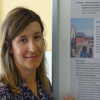About
Abstract: In EU the majority of the Ciganos continues to experience low educational attainment, high rates of school failure and drop-out and low rates of school completion.The National Study about Ciganos Communities (2014) covered all areas of continental Portugal, surveying 1,599 individuals concluded that only about 6% had completed the 3rd grade (9 years of formal education), while only 2.5% completed secondary or higher education. There are parallels between the present situation of Portuguese Ciganos and those experienced by Roma elsewhere in the EU. It is more a result of structural inequality than due to a lack of skills: a ?one-sided mismatch?.A recent qualitative study conducted by some members of the research team (2013-2015) found that in some neighbourhoods in the metropolitan areas of Lisbon and Porto it is still common for Ciganos to not complete compulsory schooling. Among the adults there was no example of continuing in formal education until 12th grade.Taking what has been said into consideration, our proposal?s main aims are:1)To identify and understand the trajectories of Cigano pupils attending secondary school in the metropolitan areas of Lisbon and Oporto, and their aspirations for access to higher education. We intend to do this by mobilizing an interactive, dynamic and procedural interpretive model involving six crossover levels to measure success.To this end, we intend to adopt an essentially qualitative methodology that uses research and participatory methods, in the belief that participatory approaches allow the local contexts to benefit from broader experiences, by linking research processes to academic researchers as well as to Cigano representatives and stakeholders. 2) The research phase will be followed by the development of a common curriculum that will provide vocational and 12th grade certification to young Ciganos who have dropped out of formal education.This proposed training will implement participatory actionresearch procedures in the construction of the training programme and it will be developed within the framework of a collaborative platform between institutions and public and civic organisations. It will seek to promote and expand the access of young Ciganos to secondary education, prepare them for access to higher education and provide them with employment opportunities.The project is the result of a partnership and close working relationships between research centres and researchers with a strong background in the area of Ciganos studies and issues that are linked to the proposal. Some of the researchers have been studying the Portuguese Ciganos since the 90?s and completed their doctorates in Ciganos studies (Mendes and Magano), while others have been involved in studies of social policy, education and vocational training (Abrantes, Costa, Samagaio and Caetano), extensive methodologies (Candeias) and qualitative methods (Mendes, Magano and Costa).
Scientific area(s): Sociology
End beneficiaries/target population: Teachers
Timetable: October 2018-October 2021


